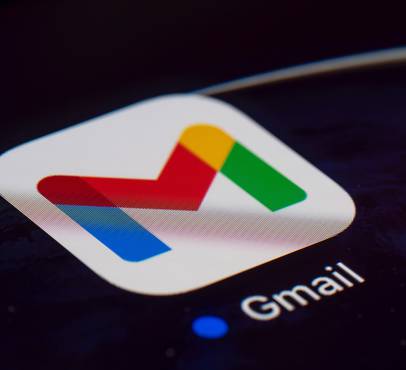At SEO Week 2025, Rand Fishkin reported that in 2024 ChatGPT returned 37.5 million searches per day. That’s a lot, right? Not really, no.
Google, by contrast, returned 14 billion searches per day, meaning that in 2024 ChatGPT was < 1/10,000th the site of Google.
Inevitably, the gap would close and by July 2025 ChatGPT was processing an estimated 2.5 billion daily prompts. While Google is still your priority, ChatGPT and other large language models (LLMs) now have to be taken seriously.
How has AI become to prevalent in search?
Fuelled by advancements in machine learning and a greater understanding of natural language, search engines like Google have become adept at interpreting and answering complex conversational search queries that previously would have required numerous individual searches and visits to various websites.
As a result, there’s been a fundamental change in how users search. People have now come to not only rely on, but to expect answers that are synthesised in search results and LLMs.
Google has always tried to better understand user search intent with the following key models all helping pave the way for AI search:
- The knowledge graph (2012) - saw Google move away from keyword matching to understanding entities.
- Vector embedding (2010s - 2020s) - here keywords were replaced with semantic search
- Bidirectional Encoder Representations from Transformers aka BERT (2018) - this allowed Google to understand the context of words used in search queries rather than just the keywords themselves.
- Multitask Unified Mode aka MUM (2021) - gave Google the ability to process complex queries including multimedia on one answer.
How does GEO (generative engine optimisation) differ from SEO?
While SEO is concerned with improving search visibility and driving sessions from organic search results, GEO is about appearing in the answer, whether in an AI overview or directly in the LLM such as ChatGPT, Google Gemini or Perplexity.
As an SEO you’re creating content to be discovered and consumed by humans unlike GEO, where machines are your intended recipient. This means your content needs to be easily understood by the AI models so that it can be accurately synthesised into answers.
How do you optimise your website and content to appear in LLMs and AI search?
Whether you’re an agency or in-house marketer, you’ll likely have wondered about the visibility of your brand(s) in generative AI results. Here’s what you should be focusing on.
Accessibility
Just like with traditional SEO and ensuring that search engines crawlers can crawl and index your pages, it’s imperative that the AI machines can access your content.
This goes beyond just text since their answers are compiled from images, videos, PDFs, charts, and tables. Ensure you’re not blocking any LLMs in your robots.txt file.
Clarity
Crystal clear, unambiguous, well-structured, easily-parsed content built around concepts the AI models can recognise and understand is fundamental to appearing in LLMs and AI search.
Break your content down into clear semantic units using subject-predicate-object relationships to help the AI's understanding.
Use structured data to help the models better understand the context behind your content and make data easily accessible in formats that LLMs can use without having to rework.
FAQs, bullet point lists, tables, charts, and short summaries are ready-made snippets for AI to parse and incorporate into its output.
FAQ content is naturally phrased in a conversational way, so you’ll be using the sort of language that your customers are also employing when talking to LLMs or performing a Google Search.
Authority
The modes are far more likely to cite trustworthy, well sourced content from brands who demonstrate their authority. Create high quality, authoritative content that is helpful, reliable and user-first.
This applies to traditional search as much as it does to AI search. By employing these time-honoured SEO techniques you’ll maximise your chances of appearing in search engines such as Google and Bing and by extension in ChatGPT since this LLM uses both of these search engines to generate its answers.
Away from your own site or domain you should look to seed your brand on trusted websites. LLMs crawl popular websites for their content, like Reddit, Medium and Substack, since they’re keen to use UGC (user generated content) in their answers.
By taking part in discussions and referencing (or ‘seeding’) your content on these platforms, you’ll be covering another touchpoint and maximising your chances of citation in generative AI output.
The same principle goes for any high-authority website. Brand mentions in trade magazines, industry directories, awards websites, news outlets and relevant blogs represent a positive signal to LLMs (and users!)
For this, digital PR tactics are as important as ever – create sharable, engaging content that journalists will want to cover. Make the most of your internal leaders to offer comments and thought leadership on trending industry topics and themes.
By signalling that your website is worthy of being referenced elsewhere, backlinks from high-quality domains have long been an important part of SEO – they still are.
However, with the advent of AI search, it’s not so much about the backlink, but the reference. mention, or citation. LLMs look far and wide when crunching their data to provide a response. Cover as many bases as possible.
Topical relevance
Creating high-quality, topically-relevant content grouped into separate subject matter should already be a key component of your SEO strategy.
Building content hubs that demonstrate your breadth of knowledge on the topics that matter most to your brand is fundamental to being seen as a trusted voice and appearing in both organic and AI search.
Conventional search regards each query as independent, whereas AI search remembers your first prompt and builds upon it. This means you need to prepare for follow-up questions the user may ask by creating topically related content the AI might turn to in order to synthesise its answer.
Your goal is to ensure your brand remains relevant through the entire search journey.
Uniqueness
While providing unique, insightful, highly valuable content should already be part of your strategy, it's become even more important if you want to appear in LLMs.
LLMs will serve unique content where possible so look to provide the following if you can:
- Original research
- Unique personal experiences
- Data and insights only you have access to
- Tools and software
Search intent
The traditional notion of informational, navigational, commercial, and transactional hasn’t held much water for some time now. Back in 2020 Alistair Rennie and Jonny Protheroe who work on Google’s consumer insights team coined the term the ‘messy middle’ in an attempt to explain consumer purchasing behaviour.
This was pre AI search and now with LLMs at our fingertips users might use them to:
- Compare
- Explore
- Clarify or define
- Educate
- Entertain
- Troubleshoot or diagnose
Intent is no longer static, it can change at any point which again illustrates the need for clearly defined, topical relevant content covering the entire search journey.
Don't abandon SEO entirely in favour of GEO and AI search optimisation
There’s no denying the impact AI is already having on search however, it’s important to put things in perspective.
Given we’ve been optimising websites to appear in search since 2002, we’ve witnessed firsthand many perceived watershed moments that didn’t quite have the impact people assumed they would.
Google+
In 2011 Google launched Google+ in an attempt to combat Facebook’s dominance and SEOs became obsessed with social signals. It failed miserably.
The mobile-first index
Mobile-first indexing that began in the mid 2010s and officially rolled out in 2018 caused huge panic, with many fearing that their search vitality would disappear overnight. In truth, this necessary step in the evolution of search was far more gradual and even websites who took years to fully adjust felt no real impact.
Voice search
In the mid-to-late 2010s, due to the growth of personal assistants and smart speakers such as Amazon Echo and Google Home, there was a common belief that these would soon replace traditional means of searching. It was assumed that by 2020, 50% of searches would be voice. We’re still nowhere near that number.
Core web vitals
Core web vitals caused a major stir in 2020 with many SEOs investing huge amounts of time in auditing the performance of their websites in an attempt to meet the new criteria set by Google. While improving site performance to the benefit of users should always be paramount to what you do, core web vitals haven’t been anywhere near as impactful as once thought.
TikTok
Finally, short-form video content largely popularised by TikTok was seen as a genuine threat to Google’s dominance in the early 2020s. Google’s response was to launch YouTube Shorts and TikTok is yet to disturb Google’s search monopoly.
Ready for the new age of AI search?
Many are watching in horror at ‘the great decoupling’ – clicks are down, impressions are up. As zero-click searches become more prevalent, it’s important to see any decrease in organic clicks in context. Focus and report more on brand placement, perception and mentions, not necessarily traffic.
Assuming you’ve been investing time in creating authoritative content topically grouped and easily accessible to crawlers you should already be benefiting from greater exposure in AI overviews and LLMs.
“You can apply the same foundational SEO best practices for AI features as you do for Google Search overall: making sure the page meets the technical requirements for Google Search, following Search policies, and focusing on the key best practices, such as creating helpful, reliable, people-first content.”
The single biggest shift is that you're now optimising for both humans and machines.
For humans visual prompts, headings, subheadings, imagery, storytelling, and interactive design guided them through your site, allowing them to engage and understand your content.
For the machines they require you to use unambiguous language with consistent terminology, to show clear relationships and topical relevance, to break content down into easily digestible, semantically consistent parts.
If you’d like some help revolutionising your search strategy, get in touch with our GEO experts.
Message our GEO experts today
Get in touchPost by

Johnny bridges our content and SEO teams, creating and managing strategies that elevate clients' organic search visibility.
Project
Post by

Our SEO Lead with over 15 years’ experience, James calls on an extensive knowledge of search and works closely with our content team to deliver targeted, results-driven SEO strategies.
Project



